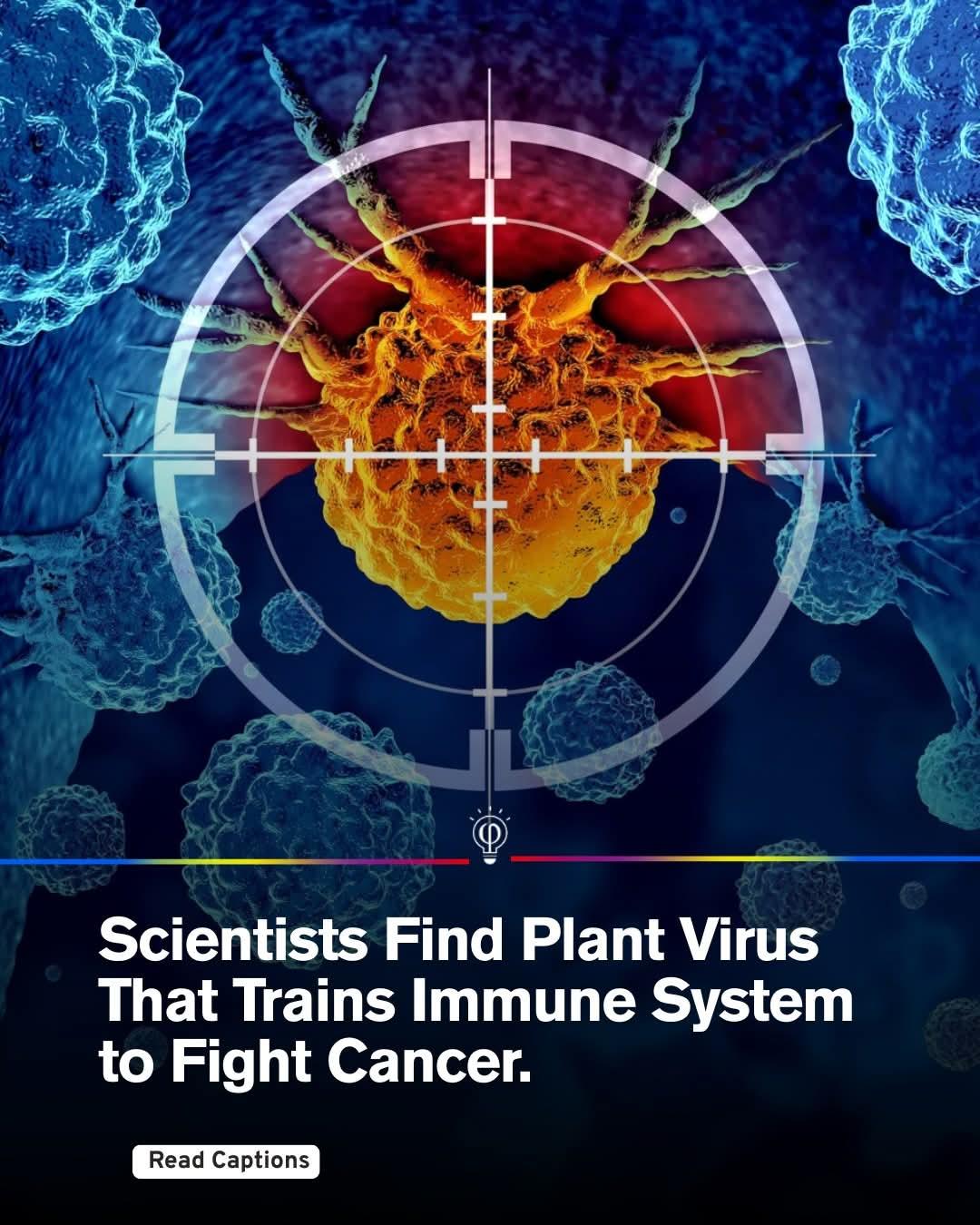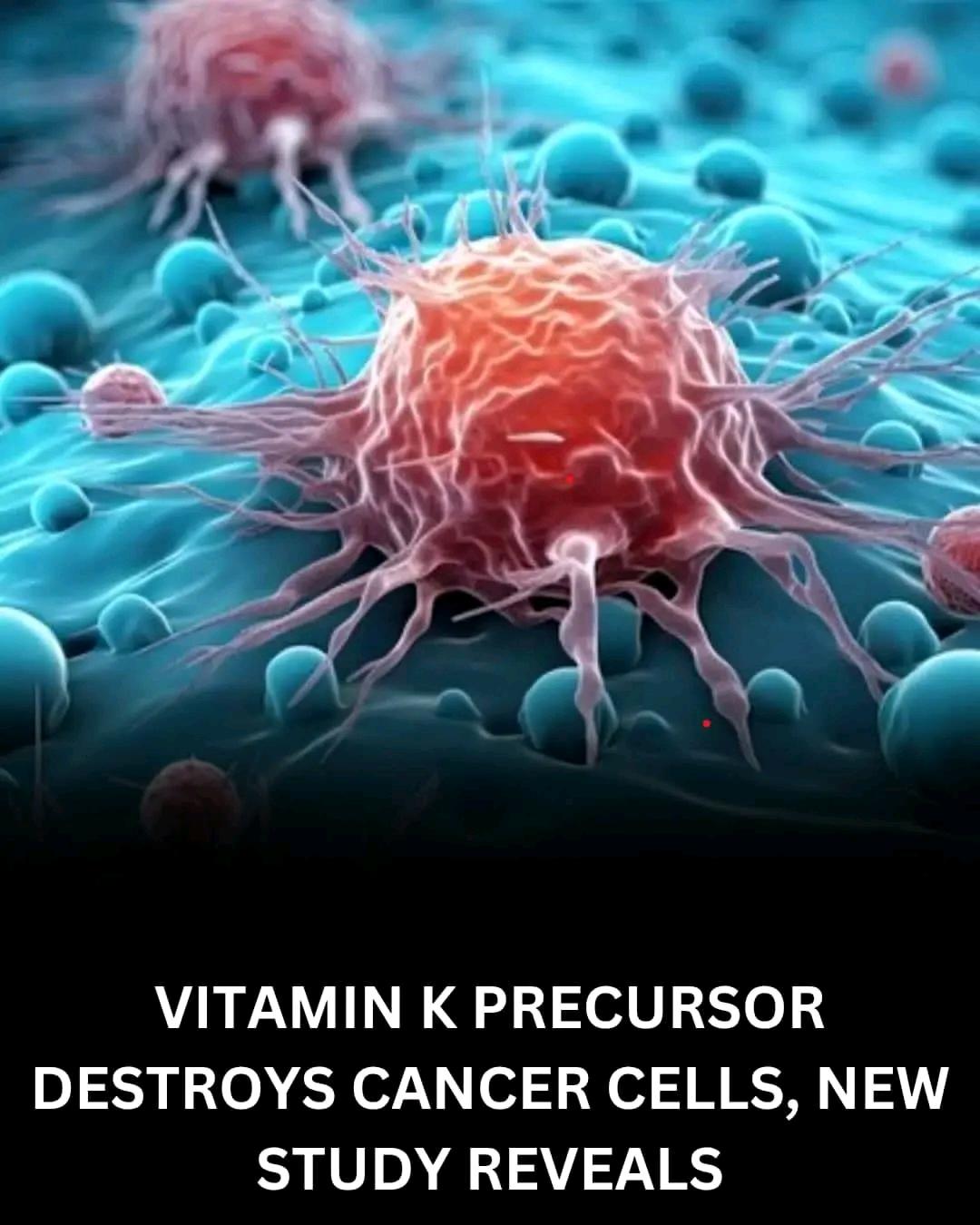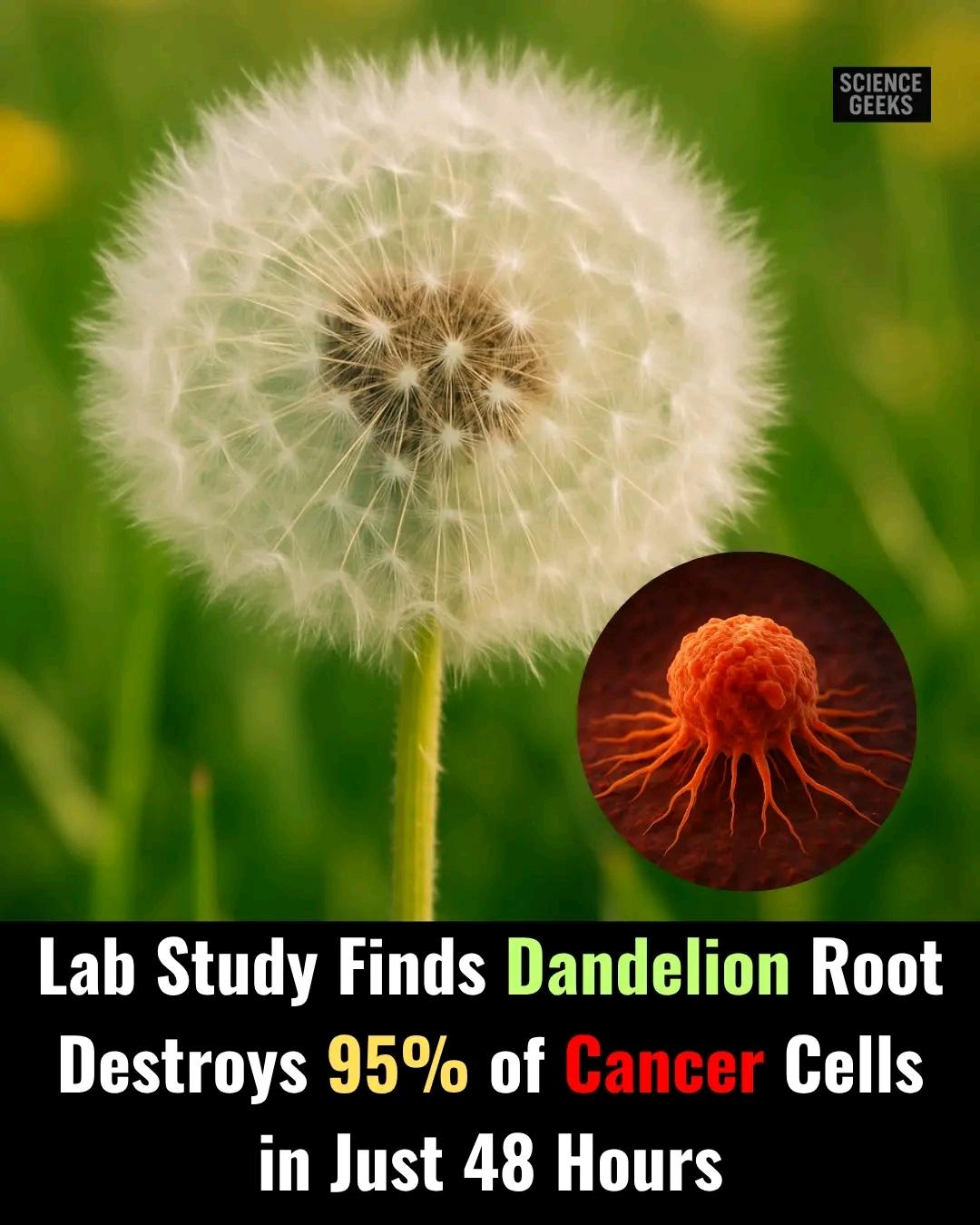What if the key to killing cancer has been growing in your backyard all along? A simple dandelion root is now showing the power to destroy cancer cells fast.
A weed to most, a wonder to science.
In a discovery that’s turning heads in the medical world, Canadian researchers have found that dandelion root extract can kill up to 95% of leukemia and colon cancer cells within just 48 hours all while leaving healthy cells untouched.
The secret lies in how it works. Dandelion root doesn’t attack cells randomly. Instead, it triggers apoptosis, a natural process of programmed cell death in cancer cells. This means it selectively targets only the bad cells, unlike chemotherapy, which often harms both healthy and cancerous cells alike—causing brutal side effects.
The extract has shown such promising results in laboratory and early clinical settings that it’s now undergoing more extensive human trials. While it’s not a replacement for modern treatments yet, it offers a glimpse of a future where nature-based therapies could provide powerful, low-toxicity options alongside or even instead of traditional cancer treatments.
Researchers are urging caution—more studies are needed—but the signs are strong. The dandelion, often dismissed as a garden pest, could become a natural cancer fighter with enormous global health potential.
This isn’t the first time nature has amazed us with its hidden pharmacy. But it’s a powerful reminder: some of Earth’s greatest cures may be hiding in plain sight—beneath our feet, on roadsides, or in wildflower fields.
If this research continues to hold up, dandelions might soon move from lawn nuisance to life-saving medicine.
#DandelionRoot #CancerResearch #NaturalMedicine #HealingWithNature #Apoptosis
A weed to most, a wonder to science.
In a discovery that’s turning heads in the medical world, Canadian researchers have found that dandelion root extract can kill up to 95% of leukemia and colon cancer cells within just 48 hours all while leaving healthy cells untouched.
The secret lies in how it works. Dandelion root doesn’t attack cells randomly. Instead, it triggers apoptosis, a natural process of programmed cell death in cancer cells. This means it selectively targets only the bad cells, unlike chemotherapy, which often harms both healthy and cancerous cells alike—causing brutal side effects.
The extract has shown such promising results in laboratory and early clinical settings that it’s now undergoing more extensive human trials. While it’s not a replacement for modern treatments yet, it offers a glimpse of a future where nature-based therapies could provide powerful, low-toxicity options alongside or even instead of traditional cancer treatments.
Researchers are urging caution—more studies are needed—but the signs are strong. The dandelion, often dismissed as a garden pest, could become a natural cancer fighter with enormous global health potential.
This isn’t the first time nature has amazed us with its hidden pharmacy. But it’s a powerful reminder: some of Earth’s greatest cures may be hiding in plain sight—beneath our feet, on roadsides, or in wildflower fields.
If this research continues to hold up, dandelions might soon move from lawn nuisance to life-saving medicine.
#DandelionRoot #CancerResearch #NaturalMedicine #HealingWithNature #Apoptosis
What if the key to killing cancer has been growing in your backyard all along? A simple dandelion root is now showing the power to destroy cancer cells fast.
A weed to most, a wonder to science.
In a discovery that’s turning heads in the medical world, Canadian researchers have found that dandelion root extract can kill up to 95% of leukemia and colon cancer cells within just 48 hours all while leaving healthy cells untouched.
The secret lies in how it works. Dandelion root doesn’t attack cells randomly. Instead, it triggers apoptosis, a natural process of programmed cell death in cancer cells. This means it selectively targets only the bad cells, unlike chemotherapy, which often harms both healthy and cancerous cells alike—causing brutal side effects.
The extract has shown such promising results in laboratory and early clinical settings that it’s now undergoing more extensive human trials. While it’s not a replacement for modern treatments yet, it offers a glimpse of a future where nature-based therapies could provide powerful, low-toxicity options alongside or even instead of traditional cancer treatments.
Researchers are urging caution—more studies are needed—but the signs are strong. The dandelion, often dismissed as a garden pest, could become a natural cancer fighter with enormous global health potential.
This isn’t the first time nature has amazed us with its hidden pharmacy. But it’s a powerful reminder: some of Earth’s greatest cures may be hiding in plain sight—beneath our feet, on roadsides, or in wildflower fields.
If this research continues to hold up, dandelions might soon move from lawn nuisance to life-saving medicine.
#DandelionRoot #CancerResearch #NaturalMedicine #HealingWithNature #Apoptosis
0 Comments
0 Shares
821 Views








